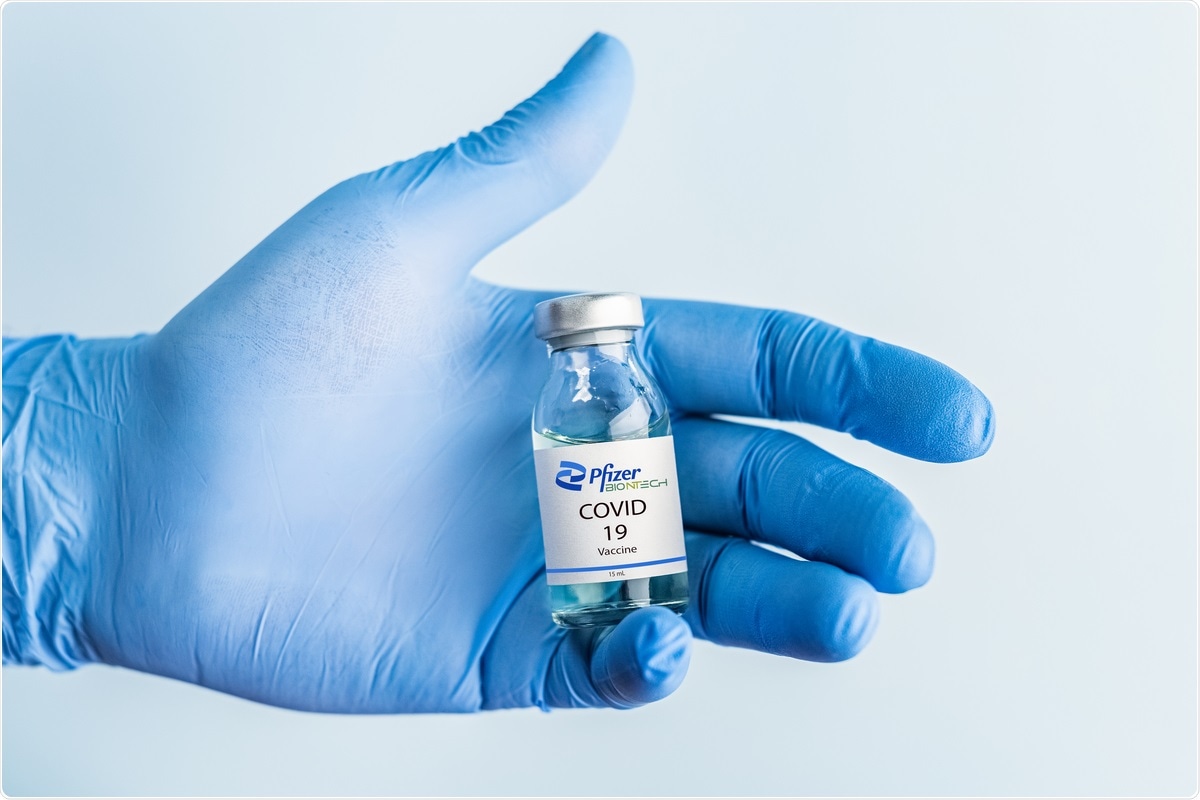Immunocompromised patients benefit from receiving the two-dose Pfizer-BioNTech vaccine, according to a new study available on the preprint server medRxiv*. The clinical trial showed that about 72.2% of immunocompromised patients had detectable antibodies against severe acute respiratory syndrome coronavirus 2 (SARS-CoV-2). While the vaccine was safe and effective, immunocompromised patients developed fewer antibodies than patients with no prior health condition. Given lower immunity against SARS-CoV-2, the researchers suggest booster shots for immunocompromised patients are warranted.
Study: Safety and efficacy of the mRNA BNT162b2 vaccine against SARS-CoV-2 in five groups of immunocompromised patients and healthy controls in a prospective open-label clinical trial. Image Credit: Seda Yalova/ Shutterstock
A preprint version of the study is available on the medRxiv* server while the article undergoes peer review.
How they did it
The open-label clinical trial enrolled 449 immunocompromised patients immunodeficient from HIV infection, allogenic hematopoietic stem cell transplantation/chimeric antigen receptor T cell therapy, solid organ transplantation, or chronic lymphocytic leukemia. Ninety healthy patients served as the control group.
All patients received their first Pfizer-BioNTech vaccine between February 23 and March 30, 2021. All but fourteen patients received their second vaccine dose. Five patients did not get the vaccine because of side effects that prevented further vaccination, and nine had a coronavirus disease 2019 (COVID-19) before their second dose.
The study evaluated the seroconversion rate (the period when there are detectable antibodies) after full vaccination. They also looked at side effects and the number of COVID-19 cases after immunization. Similar to seroconversion rates, many immunocompromised patients with CLL, solid organ transplantation, and primary immunodeficiency disorders showed low antibody titers.
Side effects related and unrelated to the vaccine
Mild adverse events were observed among immunocompromised patients, but many infected were considered unrelated to the vaccine. About 28 severe adverse events related to the vaccine were reported in 24 patients. They included one moderate vasovagal reaction in an HIV patient, febrile neutropenia in a patient with allogeneic hematopoietic stem cell transplantation, rejection in a liver transplanted patient, and syncope in another liver transplanted patient.
One immunocompromised patient required hospitalization after developing a fever, vomiting, signs of disorientation, and respiratory distress four days after getting the vaccine. The patient died two months after lung failure. While final autopsy results are still needed, the adverse events were likely due to the vaccine. Overall, severe side effects were highest among patients with solid organ transplantation and lowest in people with HIV. There were no severe adverse events recorded in the healthy control group.
COVID-19 infection following vaccination
About 4.6% of patients already showed antibodies specific to SARS-CoV-2 from the start of the study. Of these, 0.4% had tested positive for SARS-CoV-2 infection. Eleven participants developed a COVID-19 infection between the first and second vaccine dose. Only one patient who showed seroconversion failure at day 35 became infected with SARS-CoV-2 19 days after the second dose.
Lower humoral immune response in immunocompromised patients after vaccination
About 72.2% of patients showed antibodies at day 35. However, the rate of seroconversion was lower as 100% of patients in the control group were seroconverted. Patients with solid organ transplantation had the lowest seroconversion rate at 43.4%. Further analysis showed patients with organ transplants receiving mycophenolate mofetil were more likely to experience seroconversion failure. In contrast, patients with HIV had the greatest seroconversion rate among the immunocompromised group — overall seroconversion was 98.7%.
The results from this study suggest that immunocompromised patients can respond to two doses of the vaccine in question. However, additional doses may be required to improve the humoral immune response.
*Important Notice
medRxiv publishes preliminary scientific reports that are not peer-reviewed and, therefore, should not be regarded as conclusive, guide clinical practice/health-related behavior, or treated as established information.
- Bergman P, et al. Safety and efficacy of the mRNA BNT162b2 vaccine against SARS-CoV-2 in five groups of immunocompromised patients and healthy controls in a prospective open-label clinical trial. medRxiv, 2021. doi: https://doi.org/10.1101/2021.09.07.21263206
